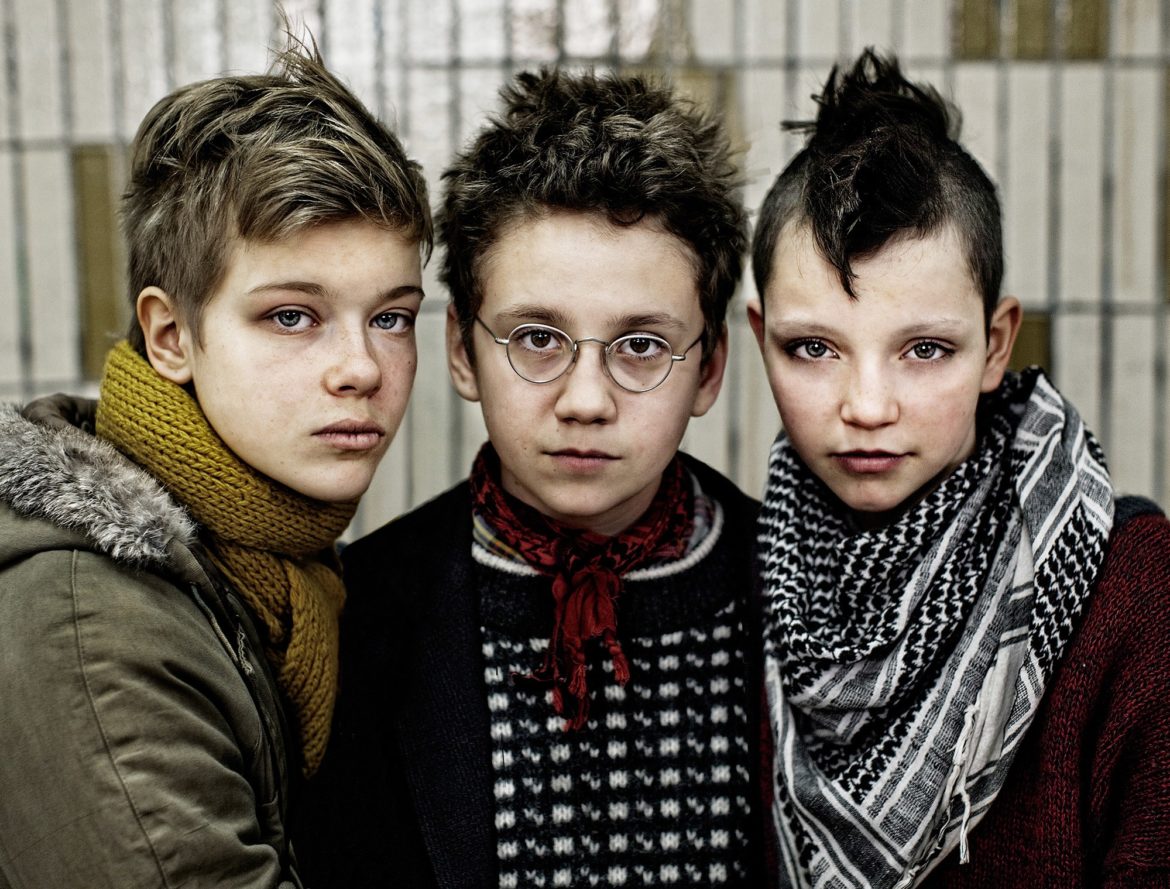We Are The Best! is a lot of fun. If you were ever in a band as a kid, or into punk rock, or in a punk rock band with your friends prior to actually learning how to play your instrument, you owe it to yourself to check it out. With its focus on three well-drawn female protagonists, with coming-of-age issues to grapple with apart from their fledgling band, it might speak even more directly to the punk rock and ex-punk ladies in the audience. But the broad comedic strokes are pretty universal – anyone who ever spent more time coming up with band names than learning songs will relate, as will anyone who ever felt marginalized, awkward, and generally confused as a teenager (which, you know: everyone).
Bobo and Klara are friends in early-80s Stockholm, two 13-year-old kids intent on keeping punk alive, even though everyone seems to have moved on to New Wave and who knows what else. On a whim, and in part to spite a dude-heavy local act, they decide to form a band themselves. They don’t have any instruments and wouldn’t know how to play them if they did, but why should that stop them?
Their signature song is “Hate The Sport,” an anthemic denunciation of social apathy, a cri de couer against a world that ignores human suffering in favor of frivolous recreation and willful ignorance. Or, as the chorus phrases it in a slightly more punk rock fashion: “Hate the sport! Hate the sport!”
One day, they’re bowled over by the guitar-playing of a classmate named Hedvig, a shy Christian girl who sits by herself at lunch. They awkwardly and adorably recruit her into the band, pragmatically deciding that, though she’s religious and that’s not punk at all, she does actually know how to play, which is a plus.
Hedvig teaches the other two some basics, and they gear up for their big debut at Santa Rock, which is billed as a momentous holiday event but is really just some amateur show in an auditorium/basement in front of a small crowd. (Again, anyone who was in or around shitty high school bands knows this auditorium/basement, regardless of country.)
Other plotlines involve fashioning their identities through hair styles, discussing the pros and cons of various bands they admire, and navigating young love and rivalries. A scene where Hedvig forces Bobo and Klara to reconcile after a fight is painfully cute and affecting. All three leads are great, especially Mira Barkhammer as the angsty Bobo, who sometimes feels marginalized even within her clique on the margins.
All that said, the film feels a little slight and minor by the end – issues are touched on and then more or less abandoned, and Hedvig’s transformation never feels entirely believable or complete. But the light-hearted mood that pushes everything along, and the winning performances, smooth all that over. The exclamation point in the title is there for a reason – it’s impossible not to root for these characters, so full of excitement and convinced of their own power, and hope things turn out well for them.
And as Klara joyously antagonizes and taunts the crowd at the end – in the most punk-as-fuck way she can manage, the entire band grinning ear to ear as they start a near-riot – it feels like they probably will.

